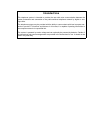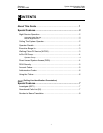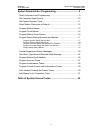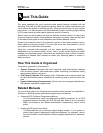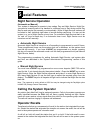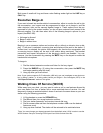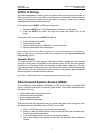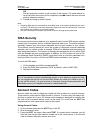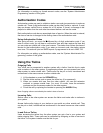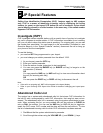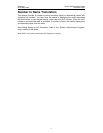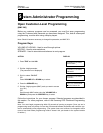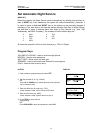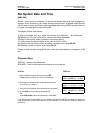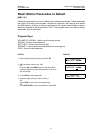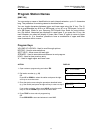
Samsung System Administration Guide
DCS-408 & 408i November 2001
6
For information on setting up forced account codes, see the “System Administrator
Programming” section of this guide.
Authorisation Codes
Authorisation codes are used to validate a station user and give permission to make an
outside call. These 4-digit authorisation codes can be either forced or optional. If used,
they are always verified from a system list of 10 entries. If forced, a message is dis-
played at a station that the code must be entered before a call can be made.
Each authorisation code has an associated class of service. When the code is entered,
the class of service is changed to the dialling class of the authorisation code.
Using Authorisation Codes
After going off-hook, you must dial ✱
✱✱
✱ followed by a 4-digit authorisation code. If you
enter a correct code, you will hear a confirmation tone and then receive dial tone and
you can make an outside call in the usual manner. The station then follows the class of
service for that authorisation code. If you enter an incorrect code, the station returns
error tone. This code will print on SMDR reports if programmed to do so in MMC 725.
For information on setting up authorisation codes, see the “System Administrator Pro-
gramming” section of this guide.
Using the Tieline
Outgoing Calls
Your office can be connected to another system with a tieline. Use this line to make
calls to stations in the other system. If programming allows, you can access lines in the
other system to make outside calls. Tieline calls can be put on hold, transferred and
conferenced in the same manner as other outside calls.
1. Lift the handset or press the SPEAKER key.
2. Dial the tieline access code or press the tieline key (if programmed).
3. When you receive dial tone from the other system, you can dial extension
numbers or access outside lines. You must, of course, know the extension
numbers and the line access codes for the other system.
4. Finish the call by replacing the handset or pressing the ANS/RLS key.
Note: Outgoing calls are controlled by the station's class of service.
Incoming Calls
Station users in the other system can access the tieline and make calls to stations in
your system.
Answer tieline calls ringing at your station as you would any other outside call. They
can be put on hold, transferred and conferenced in the same manner as other outside
calls.
In and Out on Tieline
Users accessing the tieline from the other system can get a line in your system and
make outgoing calls. These calls can be controlled by assigning a class of service to
the tieline. Your system installer must do this for you.



